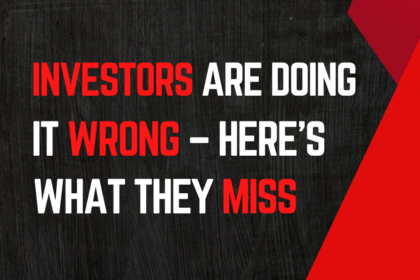
Yes, I meant what I said in that headline… let’s see if I can back it up.
In my conversation with Bryan Hancock on Executive Connect, I pulled back the curtain on the startup mythology that’s selling cities, founders, and investors a false bill of goods. We don’t need more accelerators. We need people who actually understand what the hell a startup is — and isn’t. We talked about why government doesn’t create jobs, why chasing tech talent isn’t the same as building an innovation economy, and why Austin’s startup scene is finally catching up after a decade of missteps.
We tackled one of the most frustrating — and dangerous — myths in economic development: that wealthy investors, especially those coming from real estate, can simply waltz into startups and expect similar returns, timelines, or control. They can’t. And yet they do — again and again — creating false expectations, misdirecting founders, and undermining the very ecosystems they think they’re helping. This interview pulls no punches. If you’re serious about building a viable innovation economy, especially in places like Texas, this is a conversation WE can’t afford YOU miss.
We’re doing startup ecosystems wrong. Almost everywhere.
Cities keep chasing tech companies like golden retrievers after a UPS truck, without the faintest clue why that strategy leaves them empty-pawed. Investors drop millions into “innovation hubs” that are just rebranded coworking spaces with better coffee. And don’t get me started on the economic development offices still bragging about how many businesses they’ve “started” — as if volume means value.
Let’s be clear: startups are not small businesses. If you’re opening another coffee shop or launching a SaaS platform because you saw someone raise a Series A on LinkedIn, you’re not doing a startup, you’re cosplaying. Startups are R&D. They’re experiments. They’re unpredictable, unstable, and often unreasonable. But they’re also the only meaningful source of net new job creation in the economy. Not IBM. Not your governor. Not your favorite real estate development firm. Startups.
So why do we keep screwing this up?
Let’s talk about the problem no one in economic development wants to say out loud.
The investor class — particularly those coming out of real estate — is screwing up startup ecosystems.
Not out of malice. Out of ignorance. And a wildly inappropriate set of expectations.
This is the hard truth I unpacked with Bryan, and if you’re a city leader, policy maker, or early-stage investor wondering why your region isn’t becoming “the next Silicon Valley,” and why startup ecosystems fail, you need to hear it.
Here’s the crux of the issue:
Startups are not real estate nor operating companies.
And yet, over and over again, the wealth class behaves as though they are.
Let’s say you’ve made your money buying properties, developing land, leasing commercial space. Good for you, that’s a proven way to generate wealth, especially in a place like Texas. You understand depreciation schedules, zoning, asset protection, and tax benefits. You’re used to control. Tangibility. Predictability.
Now let’s throw you into a startup ecosystem, where founders pivot daily, valuations are fictional, and there’s no collateral if it all burns to the ground. You’re used to stability and cash flow. We’re doing R&D with duct tape and a prayer.
You think you’re investing in a business. You’re not.
You’re funding discovery. Risk. Reinvention.
And if that doesn’t sit well with you, that’s fine — but then stay the hell out of early-stage investing.
“We need to teach the wealth class,” I said in the episode, “but that’s tricky, because the wealthy don’t like being taught. They’re successful — what the hell do we know?”
Well, here’s what we know:
In Austin, we’ve seen 24 unicorn exits in recent years. Great, right? But unlike Silicon Valley — where that kind of liquidity recycles back into new startups — too many here cash out and head straight into property development. That’s wealth leaving the innovation economy.
Why? Because property feels safer. More knowable. More respectable.
But that safety is a trap. A startup ecosystem needs that capital back in play — backing weird ideas, funding the next cycle, accepting losses as part of the process.
“If you come into the startup world with the expectations of a real estate investor, you’re going to be disappointed. You’re going to be angry. And worse — you’re going to distort the ecosystem.”
And that’s exactly what’s happening.
Instead of investing in startup studios — places that actually blend infrastructure and innovation — we’re building overpriced coworking spaces and pretending that counts as “innovation.” Instead of teaching new investors the differences between angel investing, venture capital, and seed funds, we’re letting them set terms they don’t understand and then wondering why the founders flee to New York or California when it’s time to scale.
Here’s the fix: we have to teach the capital class. Period.
Teach them that accelerators need incubators to work. That seed investors lose 9 out of 10 bets. That marketing matters more than code in early stages. That startups are R&D, not cash-flow machines. That if you want certainty, buy more buildings.
And if you’re a startup founder, you need to know this too — so you don’t end up wasting years chasing money from people who expect real estate logic in a venture world.
The entire interview dives deep into this. We talk about:
- Why cities with vibrant arts cultures (not tech credentials) are the real innovation hubs
- How to recognize when your ecosystem is failing — even if the news says it’s booming
- What makes Austin work, and where it still falls short
- Why Nashville might be a warning, not a blueprint
- How investors can actually help — if they’re willing to learn
This isn’t just theory. It’s economics. It’s power. It’s capital moving in the wrong direction because too many people assume they know how startups work when they absolutely do not.
“You only want to be in this world if you appreciate that you’re funding R&D — and you might lose every dollar. But if we don’t take those chances, we’ll never find what’s next.”
If that’s not how you want to invest, no judgment. Just don’t pretend you’re helping startups when you’re really just buying buildings.
We need to stop pretending that accelerators work in cities that haven’t first figured out how to help people start. We need to retrain investors (especially in places like Texas) who think startup investing is just high-risk real estate with hoodies. It’s not. It’s a different playbook, a different set of expectations, and a different timeline entirely.
And for those of you in corporate jobs thinking of jumping into startups, you better be ready to take out your own trash, build your own deck, and figure out your own marketing. There’s no HR. No safety net. It’s all on you. But if you can stomach that, there’s never been a better time to get in the game, especially in ecosystems that still have room to grow.
We dig into all of it: the cycles of capital, why Nashville is a cautionary tale, how seed investing really works, and what we actually need from our cities if we want them to thrive. We talked about the future of Austin and the BS metrics we need to stop using. We introduce the Texas Freedom Fund, Bryan’s work, which helps professionals invest in oil and gas projects and save on their active taxable income.
If you’re tired of the echo chamber, and ready to rethink what it takes to build meaningful innovation — I hope you’ll tune in.
>> Listen on YouTube here or find other formats such as Spotify or Amazon here

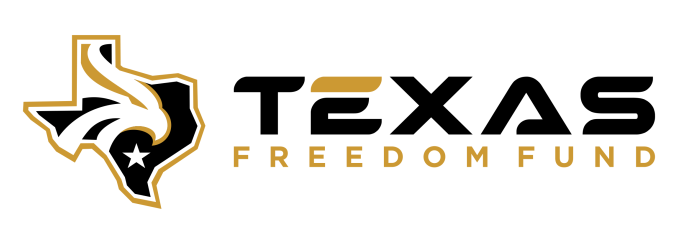


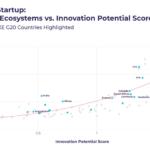
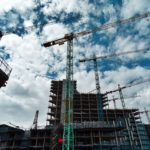

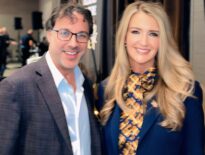
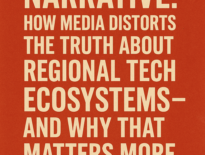
If founders are treated like tenants, don’t be shocked when your portfolio turns into a collection of eviction notices.
re: “you’re not doing a startup, you’re cosplaying.”
You need to pull-quote this bit. Kudos.
Mark Simchock I’m a little on fire with pissing people off this week
Mark Leaning, PhD damn!! Why didn’t I think of that!!! That’s a fantastic way to look at it. Well said.
Paul O’Brien I love you
Kenny Madden, I love you!!!
Paul O’Brien this was f…..in superb
Kenny Madden, And that’s the tag line going on my new business cards.
Paul O’Brien Well Done. I love this comment “And don’t get me started on the economic development offices still bragging about how many businesses they’ve “started” — as if volume means value.” I would add also “if deal size means value”. Also, with all the amazing tech we have, shouldn’t we be enjoying a modern renaissance of artisan creativity and human flourishing? We technologists and the wealthy are in echo chambers enjoying / able to afford the last surviving artisans, while the rest of the populace is drowning in poverty or corporate job slavery and mental health issues, fed heavily by the attention economy tech we have drugged them with. hashtag#learnfromitaly Shared with Greg Abbott team thoughts below from lessons learned in Italy where middle class artisans have not yet gone extinct.